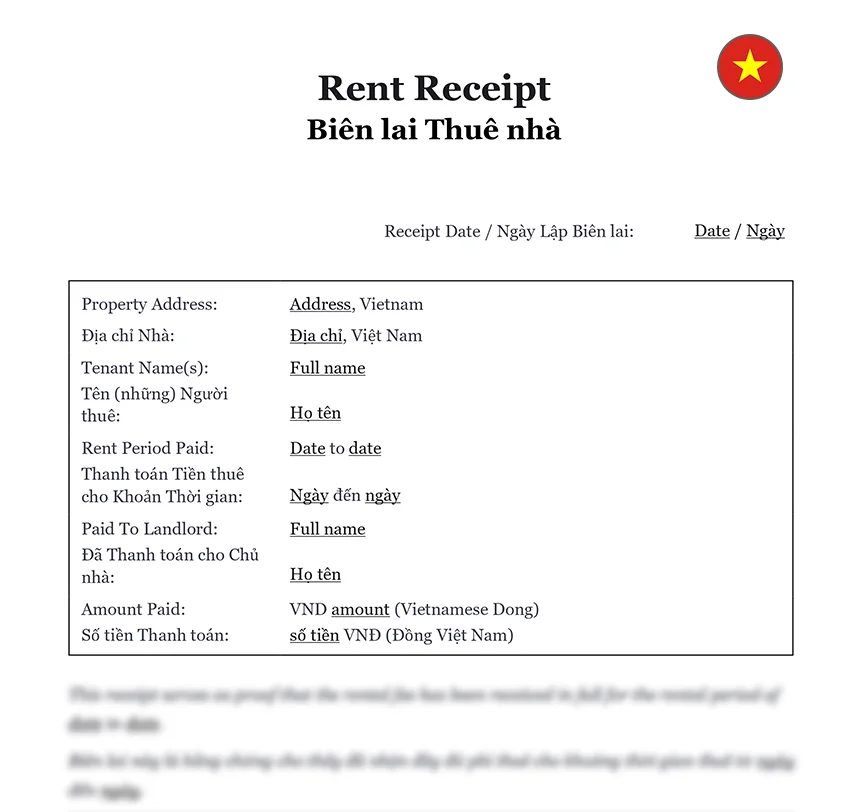1. Issue Receipts for Every Payment: Always provide a Rent Receipt for every payment received, regardless of the amount. This ensures that there is a clear record of every transaction, which can be referenced in case of any discrepancies or disputes.
2. Use Clear and Detailed Records: Ensure that all details are accurately recorded to avoid discrepancies. The more precise the records, the easier it will be to manage and verify payments.
3. Store Receipts Securely: Keep both physical and digital copies of Rent Receipts for future reference. Digital backups are particularly useful in case physical documents are lost or damaged.
4. Regularly Review Records: Periodically review the payment records to ensure all information is up-to-date and accurately reflects the transactions. This practice helps in early detection of any discrepancies or issues.
Utilizing digital tools and software can simplify the process of tracking rent payments. There are various apps and software available that allow landlords and tenants to manage rent payments, issue receipts, and maintain records efficiently. Digital tools offer automated reminders for due payments, easy access to past records, and the ability to generate detailed reports. Some popular options include RentTrack, Cozy, and Stessa, which provide comprehensive solutions for rental payment management.
Compliance with Legal Requirements:
In Vietnam, it is crucial to comply with legal requirements related to rent payments. According to the Vietnamese Ministry of Construction, all rental agreements and transactions should be documented accurately to comply with tax and legal regulations. This ensures that both landlords and tenants are protected under the law and helps maintain transparency in rental transactions. Review Updating Rental Contracts: A Legal Guide for Landlords for contract modifications.
Reporting Rental Income:
Landlords must report rental income for tax purposes, making detailed documentation essential. Accurate documentation ensures that landlords can provide the necessary information during tax assessments. This includes maintaining records of all rent payments received, which is necessary for calculating and paying the appropriate taxes. Proper reporting helps landlords avoid legal issues and potential fines for tax evasion.
Guidelines from Tax Authorities:
The General Department of Taxation provides guidelines on the necessary documentation and reporting procedures for rental income. Following these guidelines helps landlords stay compliant with tax regulations and avoid penalties. It is important for landlords to stay informed about these guidelines and ensure that their documentation practices align with the requirements set by the tax authorities. This proactive approach ensures smooth and trouble-free tax reporting.
Creating and adhering to a consistent payment schedule is another effective way to document rent payments properly. Establish clear due dates and ensure both parties understand the payment schedule. Regular reminders, whether automated or manual, can help tenants remember upcoming payment dates. Consistency in payment scheduling simplifies record-keeping and enhances financial planning for both the landlord and tenant.
1. Enhanced Transparency and Security: Using bank transfers for rent payments adds an extra layer of transparency and security. This method ensures that every transaction is documented and traceable, reducing the risk of disputes over payment issues.
2. Clear Record of Payment Dates and Amounts: Bank transfers provide a clear and indisputable record of payment dates and amounts. This helps both landlords and tenants keep accurate financial records and verify payments easily.
3. Easy Tracking and Verification: Both parties can easily track and verify transactions through bank statements. This accessibility simplifies the process of confirming that payments have been made and received.
4. Stating the Purpose of Payment: Ensure that the purpose of the payment is clearly stated in the transfer details to avoid any confusion. Including information like “rent payment for [month/year]” helps in identifying and categorizing the transaction correctly.
5. Simplified Documentation: This method not only simplifies documentation but also builds trust between landlords and tenants by providing a reliable payment trail. Clear and consistent records contribute to a transparent and professional rental relationship.
For landlords with multiple properties or complex rental agreements, leveraging professional accounting services can be highly beneficial. Accountants can manage and document rent payments, ensure compliance with tax regulations, and provide detailed financial reports. This professional oversight ensures accuracy and reduces the burden of financial management on landlords, allowing them to focus on other aspects of property management.











